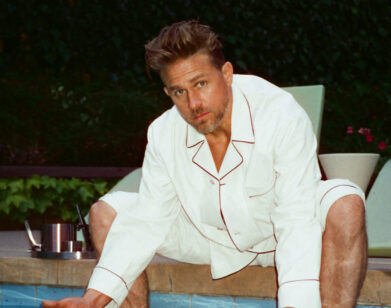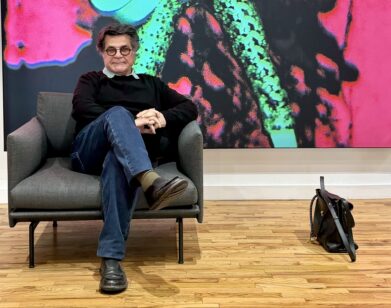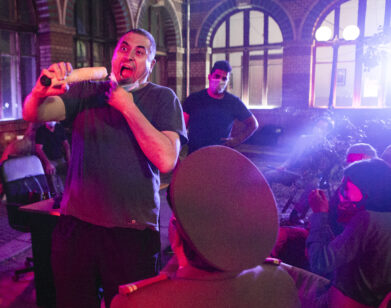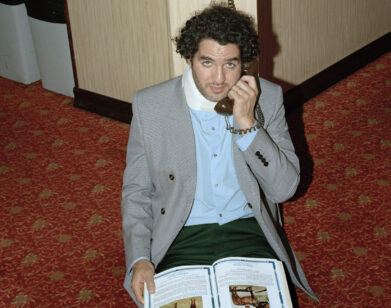David Chase’s Teenage Dreams
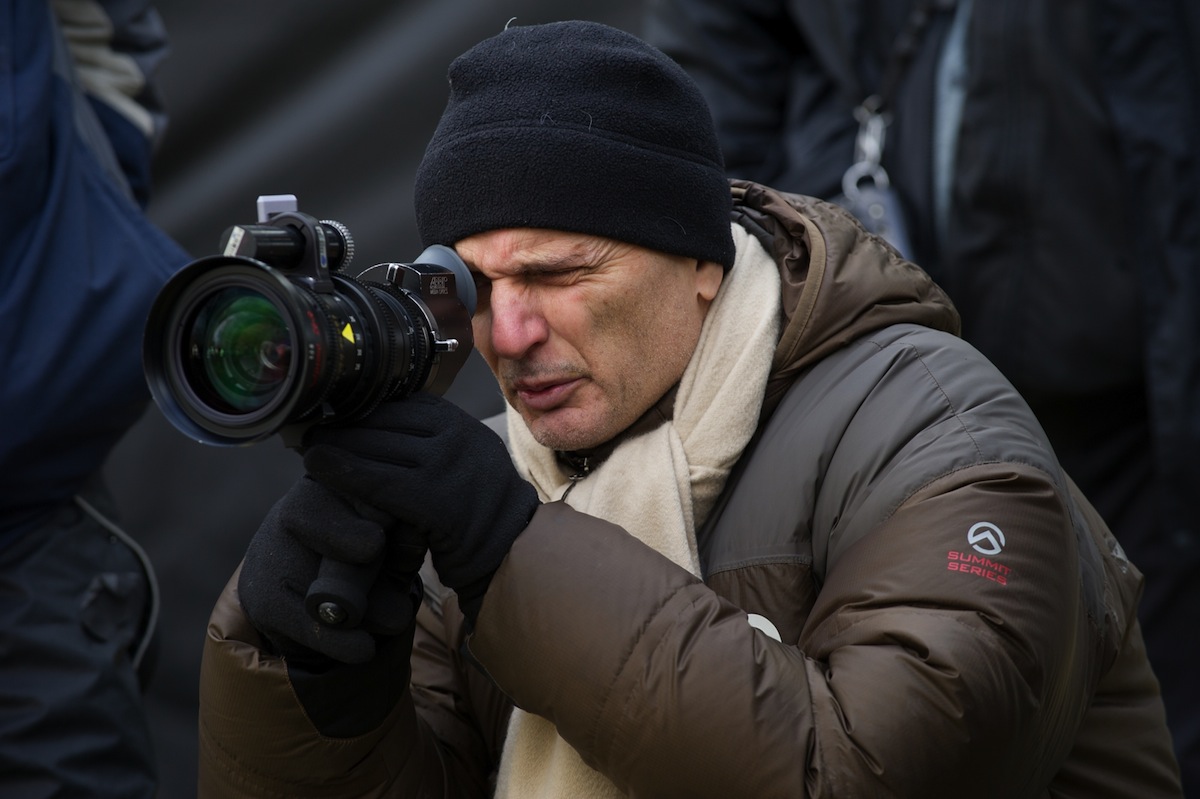
ABOVE: DAVID CHASE SHOOTING NOT FADE AWAY.
The Sopranos creator David Chase has a shelf full of Emmys—seven, to be exact—but always dreamed of making the leap from television to feature films. With Not Fade Away, he’s finally realized that dream.
Beautifully written and intimately lensed, Not Fade Away is based largely on Chase’s own adolescence, telling the story of teenage drummer (John Magaro) who forms a suburban New Jersey garage band. The transformative events of the ’60s—JFK’s assassination, Vietnam, civil-rights marches, cities burning, riots—form a backdrop to the generational clashes between Magaro and his working-class father (James Gandolfini).
Gandolfini, in a remarkable, revelatory performance, is enraged by his son’s long hair, hippie clothes, anti-war politics and—worst of all—his dropping out of college to pursue his career as a musician. But as Gandolfini becomes ill and contemplates his own lost dreams, the seismic rift between father and son tentatively reconciles. “This was partly a way to acknowledge the fact that my father had some inkling—more than my mother—of who I was,” said Chase recently. “Something in him understood my ambition or what I felt I needed.”
What made The Sopranos so unique was the unexpected juxtaposition of Tony Soprano’s (Gandolfini) ordinary suburban family life—and his vulnerable inner life, explored with his therapist—against the cold brutality of his mob life. In Not Fade Away, Chase more fully mines the kitchen-sink reality of that domestic life, filling the screen with casual wit and rich period details—from the little sister’s Archie comic books and the housecoat-clad mother ironing relentlessly to archival footage of The Twilight Zone and Gandolfini weeping while watching the WWII musical South Pacific.
Chase produced and wrote for The Rockford Files, Northern Exposure, and I’ll Fly Away before creating The Sopranos in 1999. As that series wrapped in 2007, Chase considered finally making his first film. “I always wanted to be in feature films; I never wanted to be in television,” Chase said. “I got to really enjoy my life in television once I got to HBO. I worked with some really talented people before that, but was very unsatisfied. What I always wanted to do was make a movie.”
He decided that the basis for his first movie would be ’60s music because “I just really loved the music from that era,” said Chase. “When I was doing The Sopranos, I liked putting music together with the film; that was my favorite part of it. I thought this would be a way of extending that pleasure. And then you could go past that with a movie with a score.”
During The Sopranos‘ final season, Chase discussed his idea of making a film about a New Jersey band with Steven Van Zandt, who played Silvio Dante on the show and is also the guitarist for Bruce Springsteen’s E Street Band. Chase eventually asked Van Zandt to be the music supervisor on Not Fade Away. Van Zandt spent three months, six hours a day, seven days a week, teaching the actors to play their instruments and sing. He also wrote their original songs and scored the film, which begins with The Rolling Stones and The Kinks and concludes with the Sex Pistols.
“I made up a list of songs and I put them in the script; then Steven and I talked about them,” Chase recalled. “We have similar taste and usually we were in agreement. But then during the post-production I changed it and the last song, the Sex Pistols song, I guess we must have auditioned 200 songs for that spot. And it started out with “River Deep — Mountain High” [by Ike and Tina Turner] and wound up with the Sex Pistols song [“Joother Voice,” aka “Radio On”].”
Magaro has an unrequited crush on the high-school goddess, played by Bella Heathcote (Dark Shadows)—until he steps into the spotlight as the band’s lead singer, proving for the zillionth time that even scrawny, awkward musicians get the girl (in real life, Chase married his high-school sweetheart). Brad Garrett (Everybody Loves Raymond) has a brief but wonderful turn as the world-weary manager who tries to instill some record-label reality into the hilariously full-of-themselves fledgling band.
In the film, as in life, Chase’s alter ego ultimately outgrows the band as his means of creative expression, and goes to film school. “When I was growing up, they take you to the Metropolitan Museum of Art and you look at all these paintings and you go, ‘Oh, that’s really amazing.’ And you talk and chew gum and try to, you know, dump on the field trip. You see Michelangelo and Picasso and you read literature. I had some innate inchoate yearning for that, but I never really saw where I would fit in. That’s called art. And then something happened to pop music, which is that it became art under the hand of the Beatles, the Stones, and Bob Dylan and some other people. Once the subject matter of rock-‘n’-roll changed from cars and pop love songs to songs about really true love and the blues and death and mortality, this light bulb went off in my head and I went, ‘Oh, that’s what they’re doing. That’s kind of—that’s art.’ It deals with the big subjects. Maybe I could do that. Maybe I could be an artist.”
NOT FADE AWAY OPENS DECEMBER 21.

